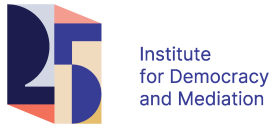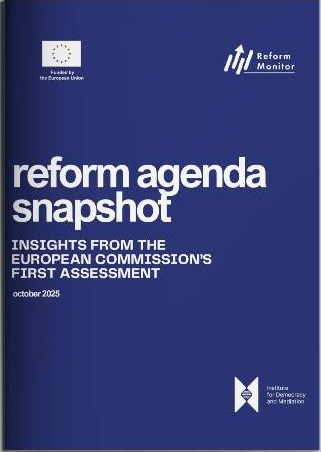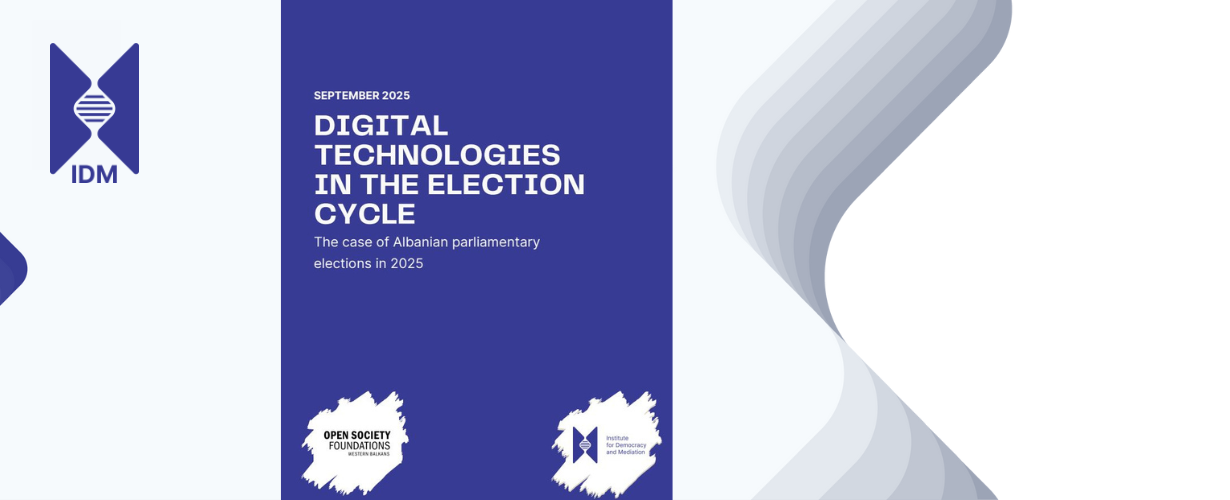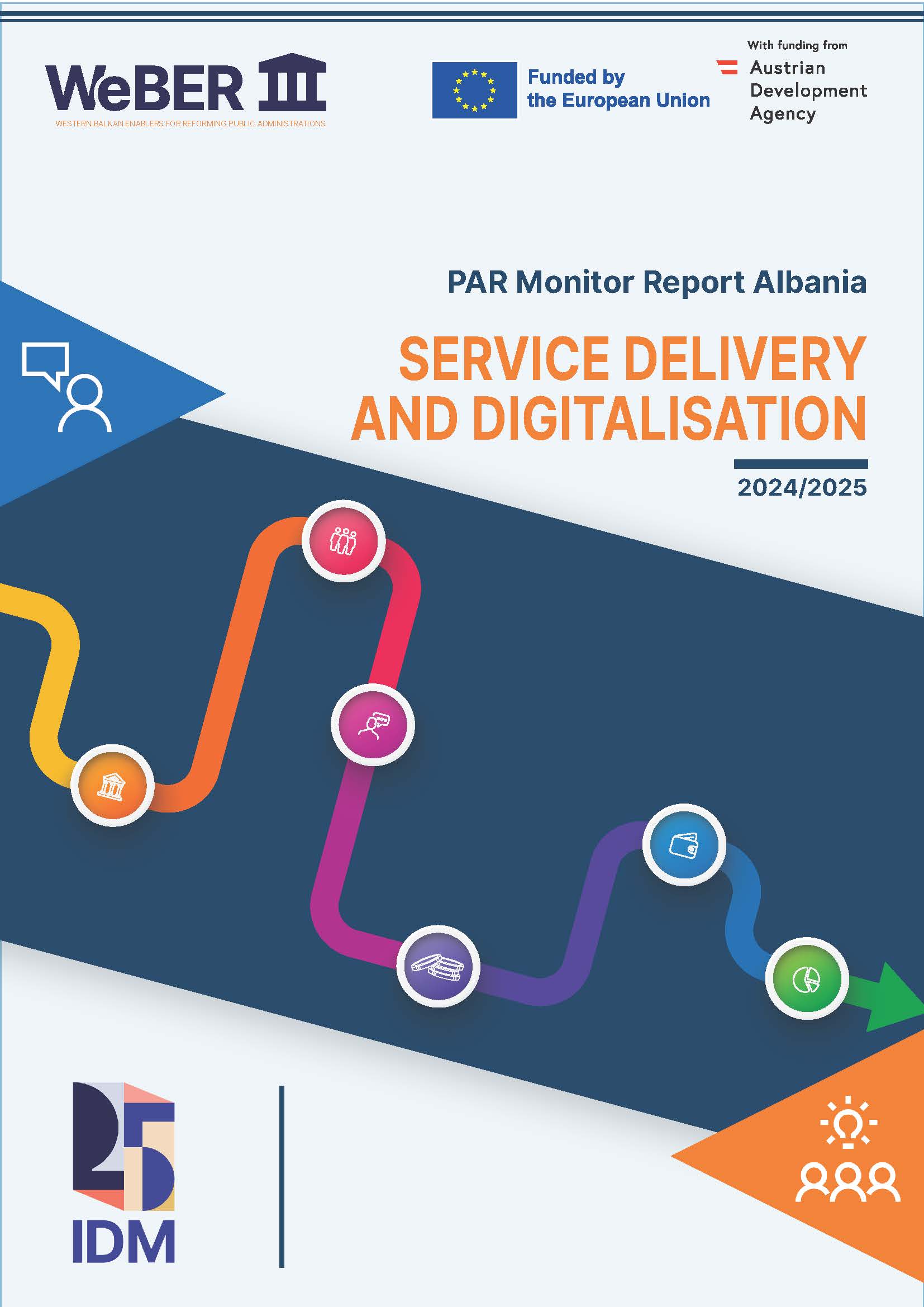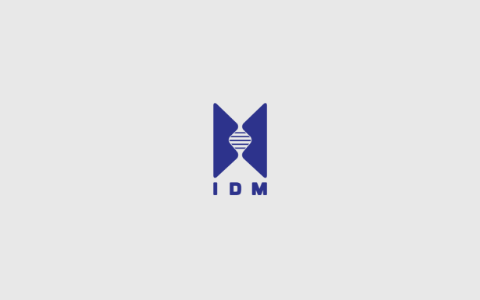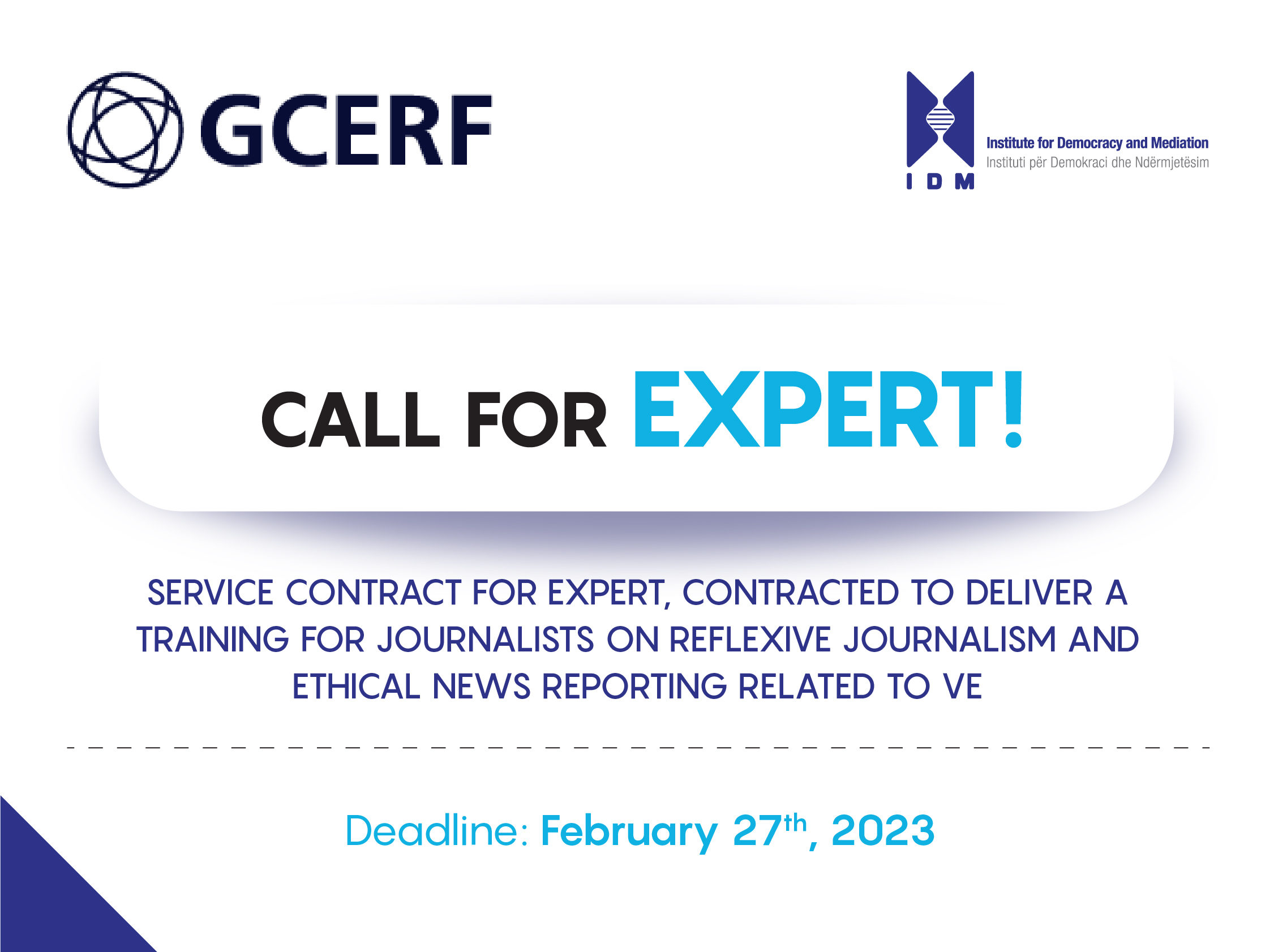Introduction
The Institute for Democracy and Mediation (IDM) is an independent, non-governmental organization, founded in November 1999 in Tirana – Albania. Its mission is to strengthen the Albanian civil society, to analyze and support the EU accession and development process in the country, and to help consolidation of good governance and inclusive policy making. IDM carries on its objectives through expertise, policy analysis, applied research, as well as through building capacities of key societal actors and developing partnerships for evidence-based policy alternatives. By combining the advantages of a knowledgeable think-tank and a resourceful operational non-governmental actor, the institute’s expertise extends in the following key sectors and thematic areas: Evidence-based and inclusive policy processes, good governance, anti-corruption reforms and integrity building; Consolidation of local democracy, accountability and transparency of local governance; Sustainable integrated development with particular focus on EU development policies; Security sector reform, specialized studies and applied research on a wide range of security issues, including violent extremism and religious radicalism; Development of civil society sector as a powerful actor to generate broad consent, values and positive change; Human capital development, management and result oriented performance; EU enlargement process with a specific focus on Western Balkans’ accession.
Background of the programme
The project “Sustainable community-based reintegration of Albanian nationals returning from Syria” is funded by Global Community Engagement and Resilience Fund (GCERF) and implemented by Institute for Democracy and Mediation, in close coordination with the Coordination Center for Countering Violent Extremism in Albania. The project is implemented in partnership with the Observatory for Children and Youth Rights and the Woman Center for Development and Culture Albania. The primary objective of the project is to ensure the sustainable and effective rehabilitation and reintegration of returning Albanian men, women and children from Syria. Through a comprehensive multi-stakeholder and cross-sectoral approaches, the programme aims to enhance the capacities of central and local institutions, frontline responders, and media, strengthen cooperation and empower returnees and hosting communities.
The project targets: Albanian nationals returning from Syria, their families, receiving communities, frontline responders (social workers, psychologists, and teachers; community policing officers) and relevant central and local level actors and non-state actors. Our intervention is composed of three main pillars: capacity building, intersectional cooperation and community empowerment component, which aim at shaping the operating environment for institutions and front-line responders while building cohesiveness and enhancing their overall resilience against violent extremism.
- The capacity building component aims at improving capacities, current knowledge and skills of front liners and institutions. It includes various activities such as: conducting research to understand the current VE threats and inform policymakers, conduct training with front-line responders and local leaders on practices and policy actions needed to ensure effective R&R, and establish a “community of practice” to enable practitioners to share knowledge, build new communication channels and learn by sharing their unique experiences.
- The second component aims to strengthen cooperation and partnerships between institutions working with R&R policies. It does so through helping prioritize CVE on the policy agenda and enhancing coordination among institutions.
- Finally, the third component aims to increase the adaptation of returnees in their communities, their acceptance by communities and overall social cohesion and reintegration of returnees in communities. This component includes a whole set of activities including VET courses and apprenticeship programs for returnees and their familiars, supporting community-based initiatives, activities with religious and community leaders, as well as cultural, recreational activities with returnees and local communities.
The project activities will take place in 10 geographical units in Albania, respectively in: 1. Yzberisht; 2. Kashar (Municipality of Tirana); 3. Municipality of Kavaja; 4. Buçimas: Rëmenj & Gurras (Municipality of Pogradec); 5. Leshnicë (Municipality of Pogradec); 6. Municipality of Librazhd; 7. Mollas (Municipality of Cërrik); 8. Municipality of Mat; 9. Municipality of Kukës; 10. Postribë (Municipality of Shkodër). The project research will take place in 1. Postribë and other border areas (Shkodër Region); 2. Prespa (Korçë Region); 3. Himara (Vlorë Region); 4. Dropull (Gjirokastër Region). The project duration is from 01.06.2021 to 30.11.2023.
Duties and Responsibilities
Objectives and scope of the assignment
The main objective of this assignment is to deliver and conduct a two day training on reflexive journalism, and ethical news reporting related to VE with journalists reporting on the topic. Participants of the training will be journalists engaged in reporting security / social-related issues, including those from conflict areas.
Tasks and Responsibilities
- The Expert is expected to conduct a two-day training tailored for journalists engaged in reporting on security/social issues, including those returned from conflict areas and VE issues.
- The Expert should deliver training materials, power-point presentations, templates and information materials to the project manager related to the topic of the training.
- The training materials should contain appropriate and useful ethical news reporting related to VE and reflexive journalism.
- The Expert should design a post-evaluation pool for assessing the efficiency of the training;
- The Expert should discuss the training materials with the Project Manager and other relevant project partners/ service providers; Ensure that the feedback from the partners is incorporated in the final draft of the module;
- The Expert should conceptualize interactive activities to be implemented during the training (i.e. simulation exercises, debates; role plays) to engage participants with practical tools related to the assignment;
- The Expert is obliged to keep all the information received during his/her activity under this contract at a confidential level and shall not distribute them without the prior approval of IDM.
Delivery and timing
The expert should start the work immediately after signing of the contract. A total of 3 working days are estimated to complete the assignment.
All deliverables will be submitted in electronic format to the Project Manager, who is the responsible person to review and to request revisions to the draft deliverables and to approve the delivery of the output.
The payment will be carried out in installments after the provision of the services and approval by the Project Manager.
Qualifications
- Post-graduate degree in one of the following fields of studies: Journalism and Communication, Social Sciences, Law, Psychology or any interdisciplinary degree that covers the related areas.
- Minimum 7 years of applied experience in the above-mentioned fields.
- Excellent command of the Albanian language; preferably, proficiency in English.
- Previous experience working on security issues and or violent extremism and radicalization initiatives.
- Solid experience in delivering trainings, workshops, seminars for the above-mentioned target group or civil society, institutions.
- Demonstrated experienced in in preparing and designing training modules, particularly on the areas related to this assignment;
Required skills and competencies
- Good teamwork and interpersonal skills;
- Ability to work with little supervision and pressure;
- Good communications and presentation skills;
- Flexibility and ability to handle multiple tasks and work under pressure;
- Ability to work in an autonomous manner, respect confidentiality and ethical rules.
- Engagement and public speaking skills;
- Excellent verbal and non-verbal communication skills;
- Proficiency in information and communication technology
Application procedures
All applications must be submitted electronically in Albanian or in English to [email protected] or hard copy to the following postal address:
Rr. Shenasi Dishnica No. 1, P.O Box 8177, Tirana, Albania Tel: + 355 4 24 00 241 Email: [email protected] Website: www.idmalbania.org
Interested candidates are invited to submit the following documents, the latest by February 27, 2023
- Curriculum Vitae, demonstrating experience on the on issues related to this assignment;
- Letter of Interest.
